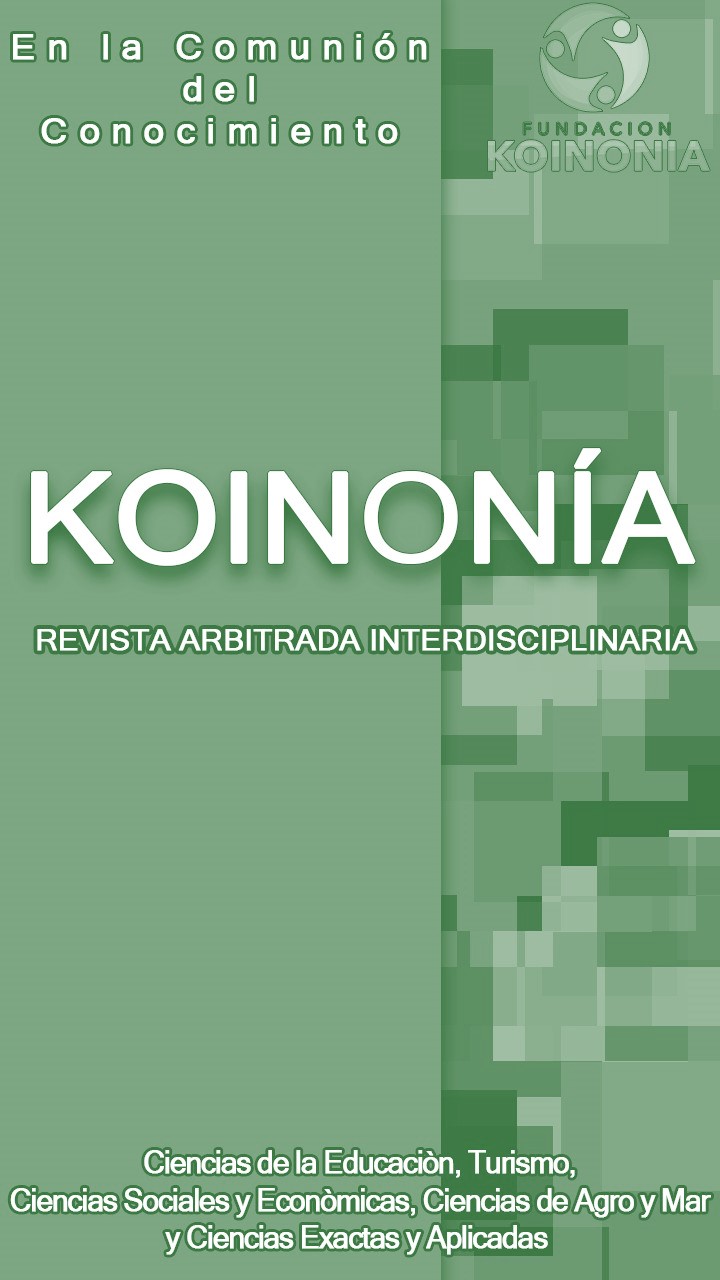Social-emotional development: A hermeneutic approach from music
DOI:
https://doi.org/10.35381/r.k.v9i2.3969Keywords:
Socio-emotional development, socio-emotionality, music, (UNESCO Thesaurus)Abstract
Nowadays, music is considered a necessary tool for education, as it not only enriches students' lives at an artistic level, but also has a positive impact on their socio-emotional development. Based on this premise, this article unfolds with the purpose of hermeneutically unveiling theoretical categories that give new meaning to music as a tool for the socioemotional development of students at the Palo Alto Educational Institution in Colombia. This is an interpretivist research, guided by the hermeneutic phenomenological method with a qualitative methodological design. Finally, it can be stated that the hermeneutic process allowed the unveiling of two emerging theoretical categories, with which music can be re-signified to the extent that it is assumed as a pedagogical and holistic tool, with which the development of socio-emotional processes can be activated in students from an early age.
Downloads
References
Ander-Egg, E. (2003). Repensando la investigación acción participativa. [Rethinking participatory action research]. México. Editorial Lumen.
Caballero, L., Garzón, M., y Martínez, A. (2022). Estudiantes, enfoques y escuela: la violencia escolar en Colombia, un balance de la cuestión. [Students, Approaches and School: School Violence in Colombia, a state of the question]. Revista Historia de la Educación Latinoamericana, 24(38), 205-222. https://n9.cl/atpx5
Chao, R., Mato, M., y López, V. (2015). Beneficios de la música en conductas disruptivas en la adolescencia. [Benefits of music in disruptive behaviour during adolescence]. Revista Electrónica Actualidades Investigativas en Educación, 15(3), 1-24 https://n9.cl/qtuh6
Custodio, N., y Cano, M. (2017). Efectos de la música sobre las funciones cognitivas. [Effects of music on cognitive function]. Revista de Neuro-Psiquiatría, 80(1), 61-71. https://n9.cl/t56vi
Díaz, J. (2010). Música, lenguaje y emoción: una aproximación cerebral. [Music, language and emotion: a cerebral approach]. Salud Mental, 33(6), 543-551. https://acortar.link/5mSMox
Díaz, V., Gatto, F., y Justel, N. (2021). Efectos de la exposición a la música activadora y relajante sobre el estado emocional de una población de adolescentes. [Effects of exposure to activating and relaxing music on the emotional state of a population of adolescents]. Hacia la Promoción de la Salud, 26(1), 84-97. https://n9.cl/ymdel
Fuster, D. (2019). Investigación cualitativa: Método fenomenológico hermenéutico. [Qualitative Research: Hermeneutical Phenomenological Method]. Propósitos y Representaciones, 7(1), 201-229. https://n9.cl/j7xm
García, J. (2012). La educación emocional, su importancia en el proceso de aprendizaje. [The Emotional Intelligence, its importance in the learning process]. Educación, 36(1), 1-24. https://n9.cl/s6wb
Gluyas, R., Esparza, R., Romero, M., y Rubio, J. (2015). Modelo de educación holística: una propuesta para la formación del ser humano. [Holistic educative model: a proposal for aiming to strengthen integral training of human being]. Actualidades Investigativas en Educación, 15(3), 1-26. https://n9.cl/fevcc
Goleman, D. (1995). La inteligencia emocional. [Emotional intelligence]. Barcelona: Editorial Kaidos. https://n9.cl/hujs0
Gutiérrez, A., Suesca, L., y Cárdenas, R. (2021). Aportes de la educación musical en el ámbito emocional. estado de la cuestión en Colombia. [Contributions of music education in the emotional sphere. state of the art in Colombia]. Revista Habitus: Semilleros de Investigación, 1(1), e12510. https://acortar.link/y6eU6P
Hurtado, J. (2010). Metodología de la investigación holística. [Holistic research methodology]. Venezuela: Ediciones Fundación Sypal. https://acortar.link/u13qLg
Ibáñez, N. (2002). Las emociones en el aula. [Emotions in the classroom]. Estudios Pedagógicos, (28), 31-45. https://n9.cl/jymo9
Márquez, M., y Gaeta, M. (2017). Desarrollo de competencias emocionales en pre-adolescentes: el papel de padres y docentes. [Development of emotional competence in pre-adolescents: the role of parents and teachers]. Revista Electrónica Interuniversitaria de Formación del Profesorado, 20(2), 221-235. https://n9.cl/trjj0
Miranda, S., y Ortiz, J. (2021). Los paradigmas de la investigación: un acercamiento teórico para reflexionar desde el campo de la investigación educativa. [Research paradigms: a theoretical approach for reflection from the field of educational research]. RIDE, 11(21), e064. https://acortar.link/aBAyhe
Mora, F. (2013). Neuroeducación. Solo se aprende aquello que se ama. [Neuroeducation. You only learn what you love]. Madrid: Alianza Editorial. https://acortar.link/IeHffF
MinEducación. (2016). Emociones para la vida. Programa de Educación Socioemocional. (Guia para el Docente). [Emotions for life. Socioemotional Education Programme. (Teacher's guide)]. https://n9.cl/vqd1zx
Repetto, E., y Pena, M. (2010). Las Competencias Socioemocionales como Factor de Calidad en la Educación. [Socio-emotional Competences as a Factor of Quality in Education ]. REICE. Revista Iberoamericana sobre Calidad, Eficacia y Cambio en Educación, 8(5), 82-95. https://www.redalyc.org/pdf/551/55119084006.pdf
Teppa, S. (2012). Análisis de la información cualitativa y construcción de teorías. [Qualitative data analysis and theory construction]. Caracas, Venezuela: Ediciones GEMA.
Published
How to Cite
Issue
Section
License
Copyright (c) 2024 Yaneth Patricia Acosta-Montiel

This work is licensed under a Creative Commons Attribution-NonCommercial-ShareAlike 4.0 International License.
CC BY-NC-SA : Esta licencia permite a los reutilizadores distribuir, remezclar, adaptar y construir sobre el material en cualquier medio o formato solo con fines no comerciales, y solo siempre y cuando se dé la atribución al creador. Si remezcla, adapta o construye sobre el material, debe licenciar el material modificado bajo términos idénticos.
OAI-PMH URL: https://fundacionkoinonia.com.ve/ojs/index.php/revistakoinonia/oai.









